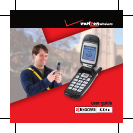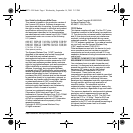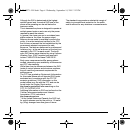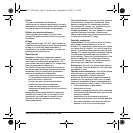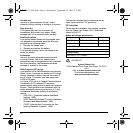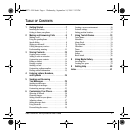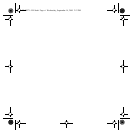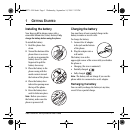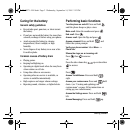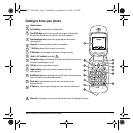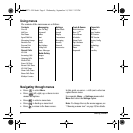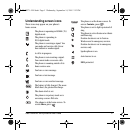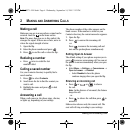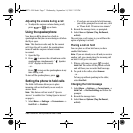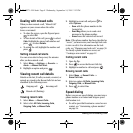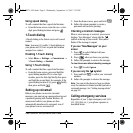
ii
Although the SAR is determined at the highest
certified power level, the actual SAR level of the
phone while operating can be well below the
maximum value.
This is because the phone is designed to operate at
multiple power levels so as to use only the power
required to reach the network.
In general, the closer you are to a wireless base
station antenna, the lower the power output.
Before a phone model is available for sale to the
public, it must be tested and certified to the FCC
that it does not exceed the limit established by the
government-adopted requirement for safe
exposure. The tests are performed in positions and
locations (e.g., at the ear and worn on the body) as
required by the FCC for each model. The body-
worn SAR values were obtained by using Kyocera
Wireless Corp. [KWC] supplied and approved
holster CV90-K0100 and case CV90-K0101.
Body-worn measurements differ among phone
models, depending upon availability of accessories
and FCC requirements.
While there may be differences between the SAR
levels of various phones and at various positions,
they all meet the government requirement for
safe exposure.
The FCC has granted an Equipment Authorization
for this model phone with all reported SAR levels
evaluated as in compliance with the FCC RF
emission guidelines. SAR information on this
model phone is on file with the FCC and can be
found under the Display Grant section
http://www.fcc.gov/oet/fccid after searching on the
FCC ID: OVFKWC-KX9.
Additional information on SAR can be found on the
Cellular Telecommunications and Internet
Association (CTIA) web-site at
http://www.wow-com.com.
* In the United States and Canada, the SAR limit
for mobile phones used by the public is 1.6 watts/
kg (W/kg) averaged over one gram of tissue.
The standard incorporates a substantial margin of
safety to give additional protection for the public
and to account for any variations in measurements.
82-N8271-1EN.book Page ii Wednesday, September 14, 2005 2:53 PM



